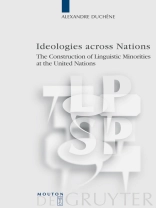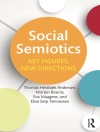The book is an invitation to a genealogical understanding of the ideological and discursive processes that have emerged out of the regulation of linguistic minorities issues within an international context and, more precisely, at the United Nations. It highlights the contradictions, limits and possibilities in the elaboration of international measures within the universalist framework of human rights. The book also emphasizes the paradoxes between national interests and the elaboration of an international community – paradoxes in which minority issues fundamentally question the homogeneity of the state. It shows that despite the shift from national spaces to international ones, the fears of nation-states for linguistic minorities remain. Finally, the book reveals the importance of the reproduction of the interests of nation-states within an international organization and the reproduction of power through the legal management and regulation of minority rights in general, and those of linguistic minorities in particular.
Through its presentation of the history of the United Nations, its vision of the protection of linguistic minorities, the underlying ideologies that have emerged, as well as the limits and possibilities of action, the book contributes to a better understanding of the complexity of the protection of linguistic minorities and the role of language ideologies within an international context.
Circa l’autore
Alexandre Duchêne, University of Teacher Education Fribourg, Switzerland.












